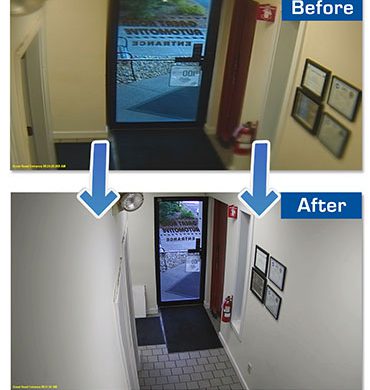Do you want to provide your business or commercial property with the highest level of security and protection possible? If so, you likely already know the benefits of having a high-quality security camera system installed.
Thanks to advances in security camera technology, today’s systems are more reliable and effective than ever before. However, there are still differences you need to understand to choose the right cameras for your building and security.
Resolution Differences
Security cameras are classified based on the resolution they provide for capturing and recording images. The resolution of any camera is determined by the number of pixels being used to create an image.
- A camera with a lower pixel count will create blockier images that are harder to recognize, providing less detail in the data recorded.
- Cameras with higher pixel counts can capture much more detailed images and provide improved facial recognition and high levels of resolution.
When you understand the various levels of resolution available with security camera systems, you can make the right choice for your business needs.
Standard, HD and Megapixel Security Cameras
There are three basic resolution categories for modern security cameras, which include
- SD or standard definition cameras can capture images at 400,000 pixels or under.
- HD or high-definition cameras can capture images that consist of 921,600 pixels or more, and this level of resolution is also displayed as 720p since it is made up of 1280 columns and 720 lines of pixels.
- Megapixel cameras are considered subsets of the HD cameras and can capture images that feature 1,000,000 pixels or higher. The images seen with these cameras consist of 1920 columns and 1280 lines, which is why they are referred to as 1280p images.
Selecting a security camera system featuring the highest number of pixels available provides significant benefits for your organization or business. Be sure to consider this carefully when you are selecting security cameras for your business or commercial building.

